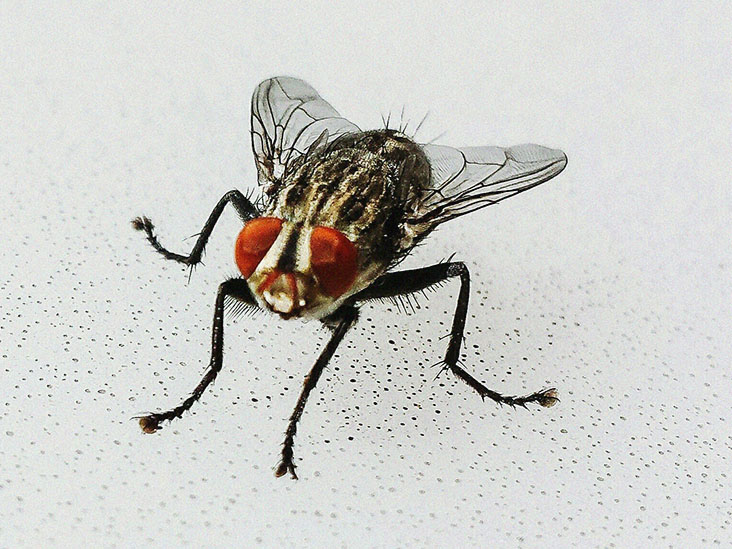Why are flies found around decomposing bodies?
There are different stages of human decomposition. During the 2nd stage, the body starts to bloat, as the body begins to produce gases. These gases can cause a body to double in size. At this stage insects can be found around and on the body, insect activity can be present, particularly in warmer climates. Flies, maggots, and others flock to the decaying flesh within minutes and begin to lay eggs.
“Flies locate dead animals through a keen sense of smell; they can detect minute traces of decomposition odour in air currents.”
This is why you will often find maggot and fly infestations within the household after a death. More often there is a problem where there has been an unattended death, this is because the body has been left undiscovered for some time and the decomposing body and odour will attract more insects.
The life cycle of a fly
- Egg laying: once a person dies, flies land on the body and begin to feed. During this process, a single fly can lay up to 300 eggs on or in the corpse.
- Hatching: one day later, the eggs hatch and become larvae or maggots.
- Feeding/Incubating: over the next few days the larvae feed on fluids coming from the deceased, eventually moving into the body or even within small crevices in the household in order to incubate.
- Hatching (again): the larvae incubate for two weeks and eventually hatches into a fly, thus repopulating the surrounding area and causing a big infestation.
Trauma Clean 24 Seven Group are trained professionally to provide high levels of cleanliness and perform all cleans with a sensitive nature. However in some rare instances larvae can hide in crevices, under floorboards and in thick pile carpets, this can mean roughly 2 weeks after a clean more flies can start to appear as they hatch from the eggs.
For any queries or for further information on our clean up after death services, please contact us on 02036408247 or email us at [email protected]

